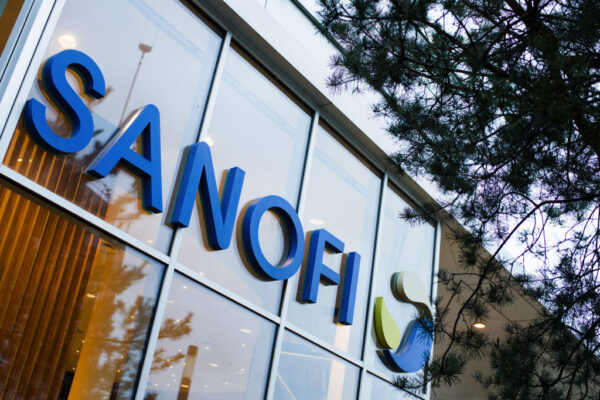
Sanofi is following several of its big pharma industry peers into radiopharmaceuticals, striking a deal for a clinical-stage therapy now in discussion for a regulatory submission as a treatment for a rare type of gastrointestinal cancer.
According to deal terms announced Thursday, Sanofi is paying €100 million (about $110 million) to license AlphaMedix, a radiopharmaceutical developed by partners RadioMedix and Orano Med. The upfront payment goes to both companies. If the therapy achieves milestones, Sanofi is responsible for paying them up to €220 million (about $242 million) more, plus royalties from sales.
AlphaMedix is in development for treating neuroendocrine tumors, or NETS, a group of rare cancers that start in neuroendocrine cells. These cells are found throughout the body, so NETs can develop anywhere. But this cancer occurs most frequently in the gastrointestinal tract and pancreas. Most NETs express high amounts of a protein called a somatostatin receptor.

Where AI Has The Most Potential For Clear ROI
Sezin Palmer talks about where AI has the most potential for ROI.
A radiopharmaceutical consists of a radioactive isotope attached to molecule that seeks out a particular target. AlphaMedix is a targeted alpha therapy comprised of 212Pb attached to a peptide complex that targets somatostatin. Under Houston-based RadioMedix, AlphaMedix has reached Phase 2 testing. The open-label study enrolled patients naïve to a peptide receptor radionuclide therapy as well as those who previously received such treatments. According to the company, results show the therapy was well tolerated and provided a substantial reduction in tumor burden with a durable response rate of 62.5%.
“In our research, we have seen that significantly higher energy delivery over much shorter path lengths in the tissue of alpha emitters can overcome the limitations of currently available beta emitter radioligand therapies,” RadioMedix Chairman and CEO Ebrahim Delpassand said in a prepared statement. “We believe 212Pb is an ideal alpha emitter with highly desirable physical and supply characteristics in comparison to other alpha emitters.”
The Phase 2 test is still being completed but Sanofi and RadioMedix say the data are now being discussed with the FDA for a potential regulatory submission. According to the terms of the licensing agreement, Sanofi is responsible for global commercialization of AlphaMedix. Orano Med will manufacture the product using a platform that is currently in development.
The first radiopharmaceutial approved for gastroenteropancreatic neurodendocrine tumors (GEP-NETs) is Novartis’s Lutathera, which won its FDA nod in 2018. Lutathera targets somatostatin receptors and delivering to cells its beta-emitter payload.

Turning Data Into Action: CEO Jason Prestinario on AI & Data Democratization
See how Particle Health is transforming medical data into actionable insights.
Bristol Myers Squibb has a GEP-NETs drug candidate in late-stage clinical development from its $4 billion acquisition of RayzeBio last year. Other pharma companies have turned to dealmaking to enter the radiopharmaceuticals space. Eli Lilly paid $1.4 billion to acquire Point Biopharma Global. In March, AstraZeneca, struck a deal to acquire Fusion Pharmaceuticals for $2 billion.
Photo: Nathan Laine/Bloomberg, via Getty Images






